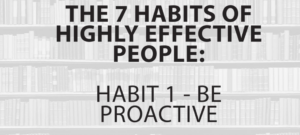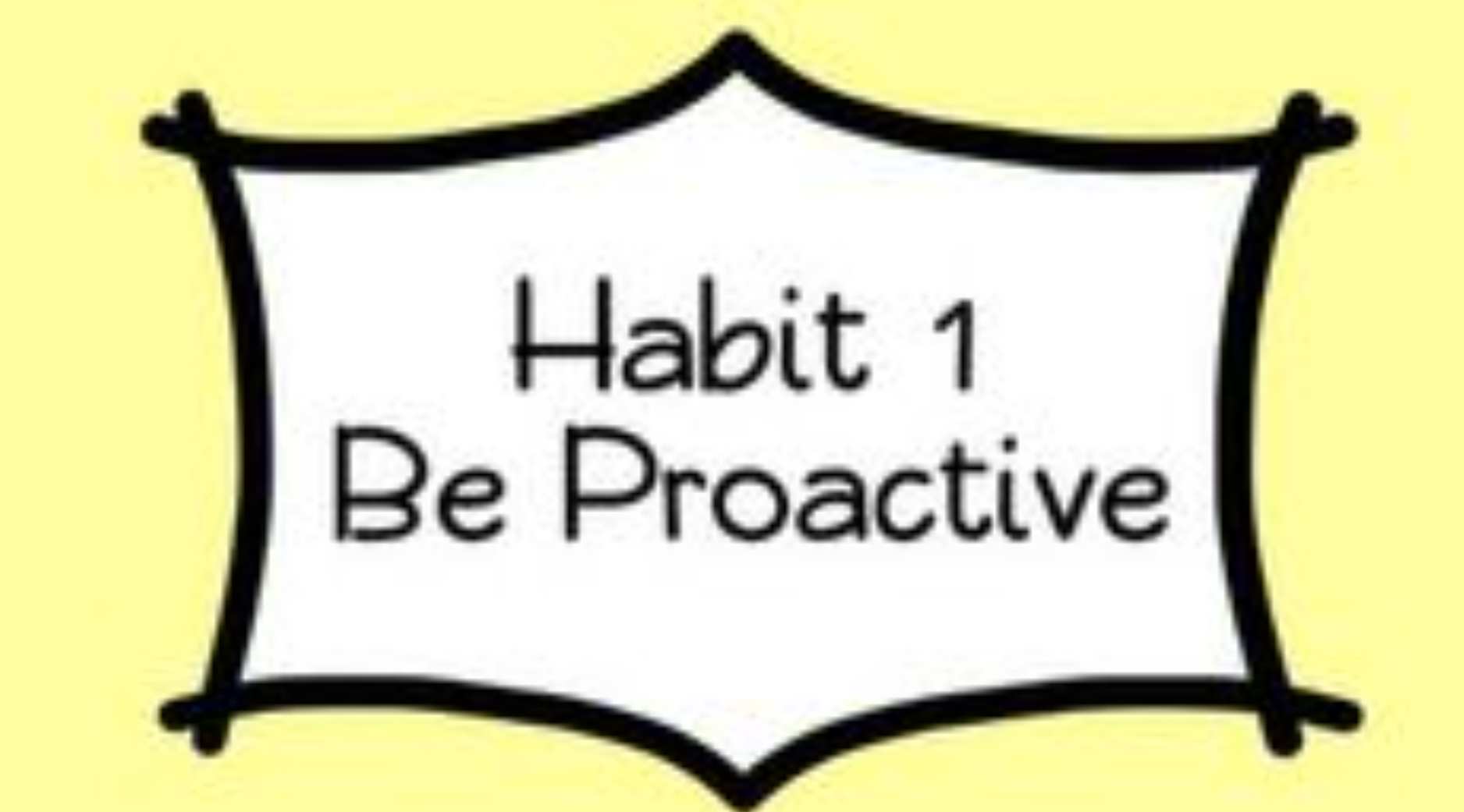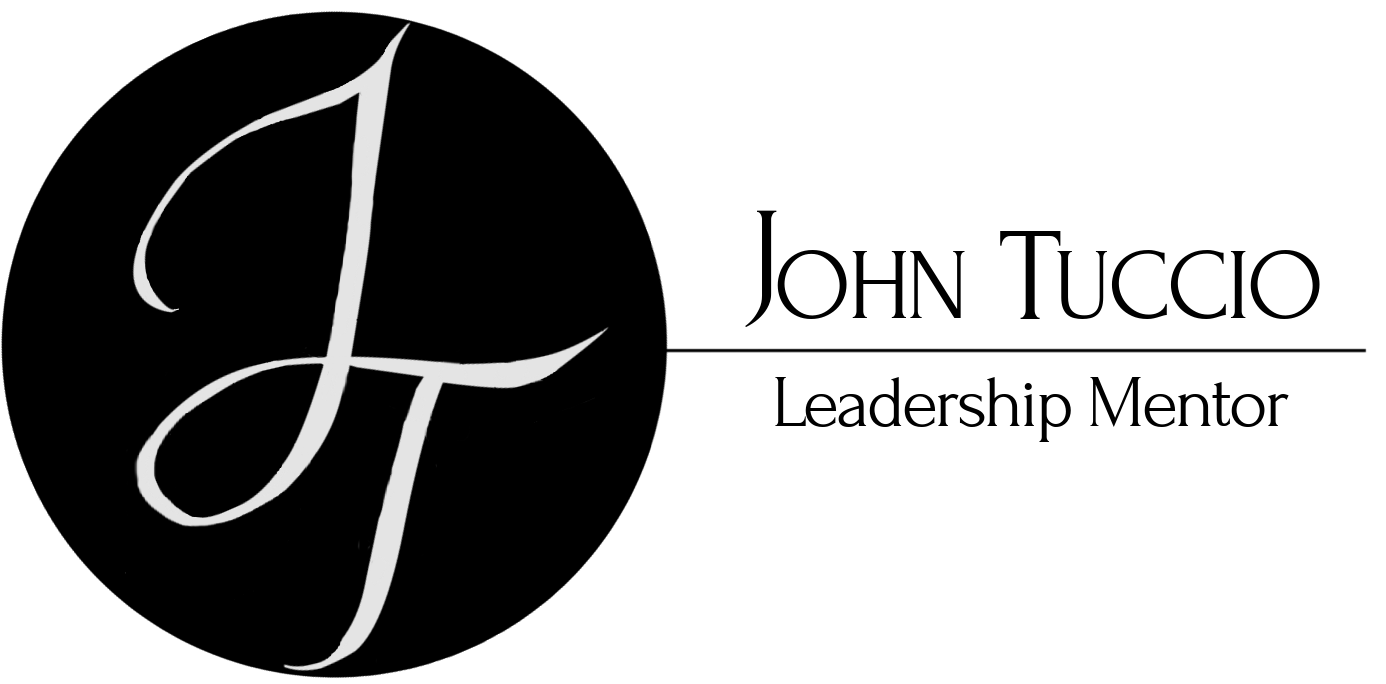
I’ll be focusing the next month or so on a book I read called, ‘The 7 Habits of Highly Effective People, by Stephen R. Covey. This book helped me take a cold hard look at myself as a person, and as a leader. I saw my faults, and where I need to make immediate changes. What’s interesting is that even after I read this book, I’m finding myself needing to reread these seven habits. We are humans, and I need the gut check again. I’m sure everyone can relate.
I’m going to take these habits one at a time, so you can challenge yourself. I do highly recommend that you read the book however, because it provides some great context in truly understanding how the habits are put to use. I’ll also share my perspective on these habits, and what struggles I’ve run into both personally and professionally.
Habit 1 is all about self-awareness. Quite frankly, many of the first habits are about self awareness. It’s so key. We are so self-involved at times. Between our day to day activities at work, and in life, we at times don’t see who we truly are, and how we are responding to every day events. I’ve shared with you in prior podcasts that I went through a dark phase. I created my own ‘paradigm’ of negativity. I would be a liar if I said it’s completely turned off, because it’s not. I am aware of it though, and I know I have to consistently challenge it. Why? Because my paradigm isn’t real. There is so much good out there, and so many good people. It’s imperative we see the beauty, and that we check ourselves.
It’s all about the freedom to choose how to respond to things. We can allow poor responses with poor consequences, or we can challenge ourselves to respond differently with more positive consequences. Here is the wake up call. Ready!? We have to stop blaming circumstances, and conditions for our behaviors. This is a message I’ve shared with others both in my personal life, and in different professional settings. Rarely do we take a cold hard look at what we are producing every day, and take accountability for it. We make things ‘OK’. Are your decisions building you up for amazing things? In other words, is it bettering you as a person? Is it moving you forward? I feel today everyone feels they deserve that top notch job or amazing ‘life event’. Do your actions, and attitude define the person that should have that position, or event? Doing it for a month doesn’t deserve the gold medal. Yes, you do deserve a high-five for making changes. However, consistency is definitely key. I’m working on that always, and the truth is, we all will. Can you admit that though?
Once you recognize that you have control, it’s now time to change your language. How do you view challenges? What is your ‘language’ around challenges? These are a few examples discussed in the book. Verbiage like, ‘There is nothing I can do’ versus, ‘Let’s look at our alternatives’. Another example is, ‘That’s just the way I am’ versus, ‘I can choose a different approach’. See the difference? The verbiage, or language, is much more self accountable and gives you the opportunity to see alternatives. It gives you the opportunity to take a different path that may provide more positive outcomes. When situations get tough, or frustrating, we mostly choose a reactive approach. Taking a deep breathe, challenging your thought, will allow you to change your language for a more positive consequence. This is so evident if you’re in a volatile work environment. A million things are coming at you in a minute, and you may not respond or react in the best manner. These are the most important times to slow down and review how you’re reacting. Your teams are watching you. They’ll either respect the response, or they’ll develop negative responses based on how you handled an event/situation.
It’s all about where we focus our time and energy. This goes for physical time spent, and also mental time. Are you going to focus on what you CAN control, or are you going to focus this time on what you CANNOT control? I catch myself dwelling on past decisions or events regarding work, and in my personal life. I also catch myself focusing on outcomes that may not ever happen. Both of these focuses can cause such a usage of energy, for what? What am I accomplishing? Controlling who I’m being today will have a profound impact on who I’ll be for myself, and others tomorrow and days to come. Make small commitments to help better your personal routines (something I’ve discussed heavily about). To end this blog perfectly, the book states to be a light, not a judge. Be a model, not a critic, and be part of the solution, not the problem.

